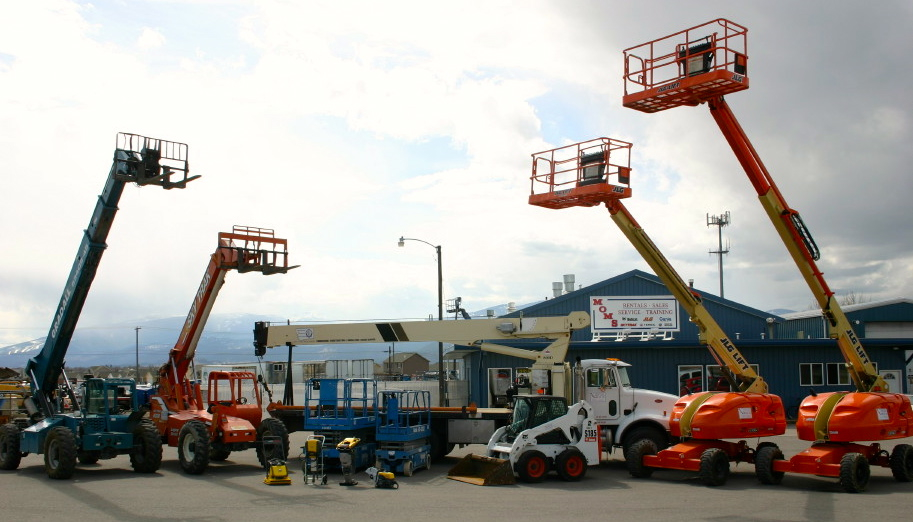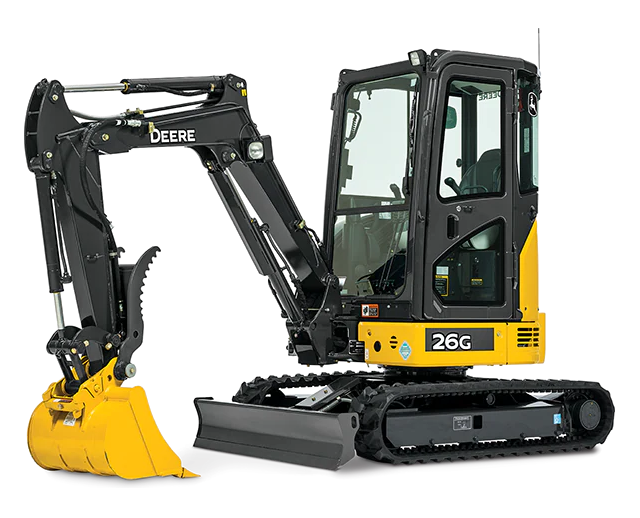Forklift Rental: Heavy Lifting Equipment for Warehousing and More
Forklift Rental: Heavy Lifting Equipment for Warehousing and More
Blog Article
Optimize Your Budget Plan by Comprehending the Costs Connected With Construction Tools Leasings
Comprehending the complete extent of prices connected with building and construction tools services is essential for optimizing your budget plan. What approaches can be employed to efficiently take care of these costs and ensure an extra reliable rental experience?
Review of Rental Expenses
When considering building and construction devices rentals, recognizing the connected prices is critical for effective budgeting and job planning. Rental expenses can vary substantially based upon a number of factors, consisting of equipment kind, period of service, and place. The initial rental charge frequently mirrors the equipment's market demand and its linked operational capacities, influencing the general expenditure.
Along with the base rental price, ancillary expenses might arise, such as transport costs, gas surcharges, and upkeep charges. It is important to account for these extra costs to precisely assess the overall expense of renting out equipment. The rental duration can influence pricing; longer rentals may certify for reduced prices, while temporary services could incur higher daily fees.

Breakdown of Rental Rates
A comprehensive understanding of rental prices is essential for contractors and task supervisors intending to enhance their budget plans. Rental rates for construction tools usually are composed of numerous parts, including base prices, time-based fees, and use costs.
Base rates are the core fees related to the service of the devices, typically identified by the type and dimension of the machinery. These prices can vary dramatically, affected by aspects such as devices need, availability, and regional market fads. Time-based charges, which may be daily, weekly, or monthly, serve to fit various task timelines and rental periods.
In addition, rental prices may consist of usage costs, which are appropriate when equipment is used beyond a defined threshold, making sure that the rental business can represent wear and tear. Seasonal need fluctuations can additionally affect rental prices, with peak building seasons commonly commanding greater costs.
Furthermore, understanding the rental firm's policies pertaining to maintenance and insurance policy can give additional understanding into the total cost framework. By analyzing these parts, specialists can make informed decisions, making certain the selection of rental tools aligns with both task requirements and budget plan restraints.
Additional Fees to Consider
Recognizing the details of additional fees is important for specialists to handle their overall rental costs successfully. Past the typical rental prices, various extra costs can dramatically influence the total price of equipment rental. These fees frequently include delivery and pickup charges, which can vary based on range and logistics associated with transporting the equipment to and from the work website.
Moreover, some rental companies may enforce gas surcharges if the devices is returned with less fuel than when rented. It is additionally necessary to recognize possible cleansing charges, especially for specific equipment that requires detailed upkeep after use.

Thoroughly evaluating the rental agreement and making clear these extra costs upfront can help contractors stay clear of unanticipated costs and ensure that budgets continue to be intact throughout the project lifecycle.
Repair And Maintenance Expenditures
Routine upkeep and repair service expenses are frequently forgotten elements that can significantly affect the overall price of building tools leasings. When renting out equipment, it is critical to take into consideration not only the rental charges yet also the prospective prices connected read the article with keeping the equipment in optimum operating condition.
Lots of rental companies include standard maintenance as part of the rental arrangement; however, much more unforeseen failures or extensive repair work can cause added expenses. It's necessary to assess the rental contract thoroughly to comprehend what upkeep solutions are covered and what responsibilities fall on the tenant.
Moreover, devices that is not properly maintained can bring about inefficiencies at work website, possibly raising and creating hold-ups project expenses. To mitigate these risks, it is recommended to carry out routine assessments and keep open communication with the rental company regarding any type of concerns that occur throughout use.
Insurance Coverage and Obligation Prices
Insurance policy and responsibility expenses are important elements that can substantially affect the general expenditure of building equipment rentals (mini excavator rental). These prices ensure that both the rental firm and the customer are secured from potential economic losses developing from mishaps, damage, or burglary during the rental duration

In addition, clients need to recognize any kind of deductibles or exclusions in the insurance plan, as these can impact possible out-of-pocket expenses. Understanding the terms and problems of any insurance protection is vital to prevent unexpected prices. Ultimately, budgeting for insurance policy and liability costs can aid guarantee a smoother rental experience and secure versus More hints monetary threats connected with building tasks.
Conclusion
To conclude, a thorough understanding of the costs connected with building and construction tools rentals is vital for look at here now reliable budget monitoring. By assessing rental rates, additional charges, maintenance costs, and insurance policy individuals, organizations and requirements can decrease unanticipated expenses. This critical strategy not just boosts cost-effectiveness however likewise makes certain that jobs proceed smoothly and effectively. Eventually, informed decision-making relating to tools leasings adds to the total success of building endeavors.
Rental expenses can vary significantly based on a number of elements, consisting of devices type, period of leasing, and location (construction equipment rentals). The rental period can influence prices; longer services might qualify for reduced prices, while short-term services may sustain higher daily fees
By conducting comprehensive research and engaging with trusted rental companies, specialists can properly browse the complexities of rental pricing, eventually maximizing their monetary sources.
Beyond the typical rental prices, various auxiliary fees can dramatically impact the overall price of devices rental. Rental business often supply responsibility insurance that covers injuries to 3rd events or damage to home, while tools damage insurance coverage can cover the price of repairs or replacement if the leased equipment is damaged.
Report this page